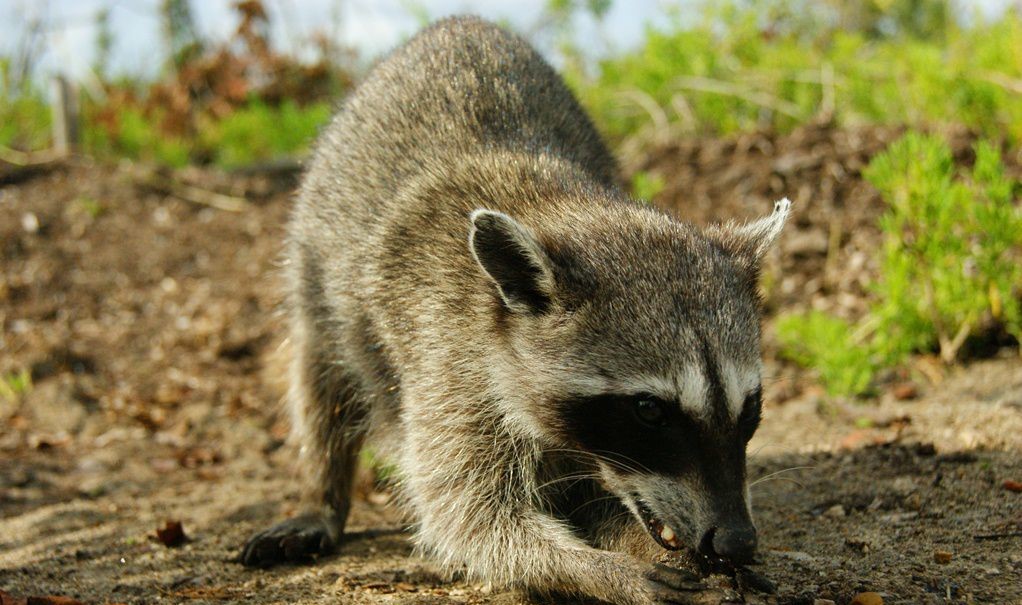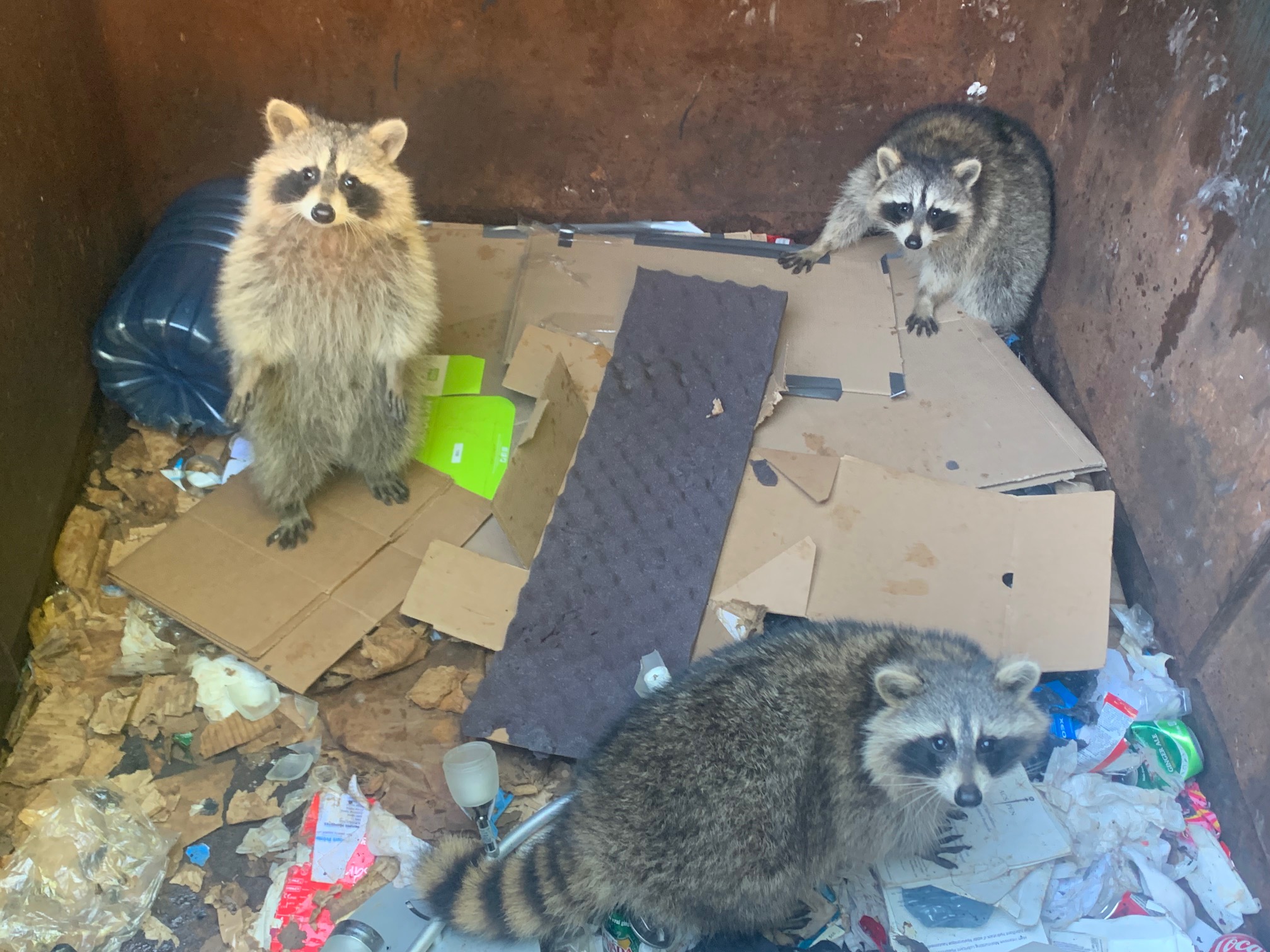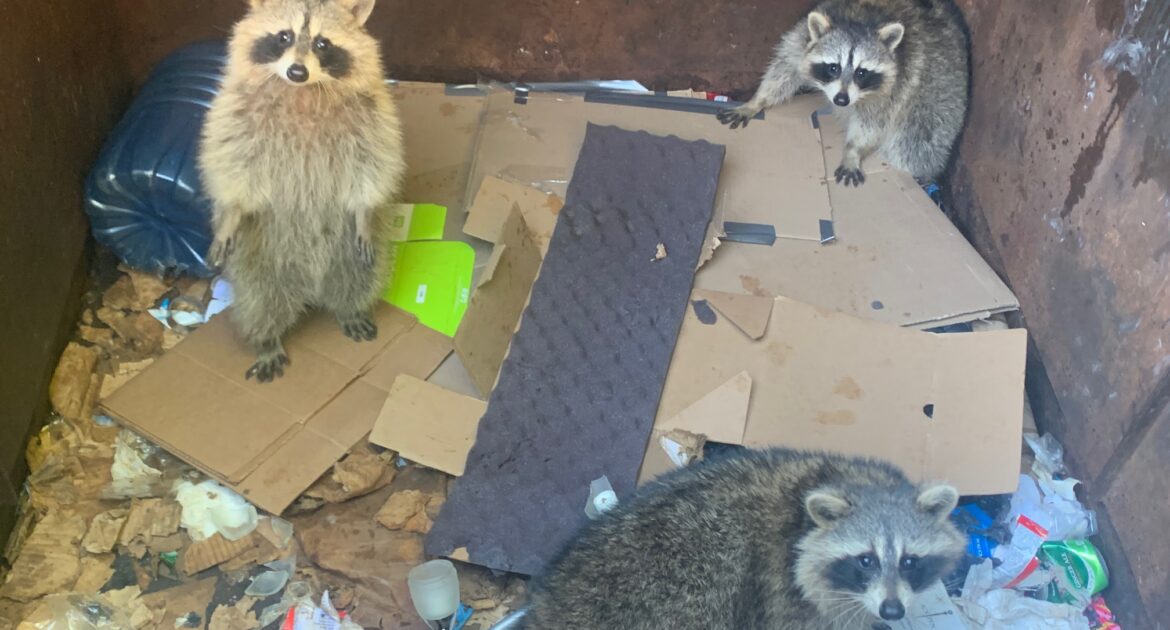Have you ever wondered what urban raccoons eat? The question is more than just idle curiosity because the answer has a bearing on whether you could have raccoons encroach on your property and invade your home, a situation that requires raccoon removal in Victoria to resolve.
What Do Urban Raccoons Eat?
While there are still raccoons that live out in nature, many have adapted to life in cities and now prefer it to the wild. Some of these urban raccoons eat the same sorts of food that their cousins in the wild do. For example, raccoons have a natural instinct to make their homes near water and hunt for crayfish and other small aquatic animals to eat. This is easy in a city such as Victoria which is on an island in the ocean.
Raccoons love to eat worms and grubs no matter where they live. In the wild, raccoons can dig for these tasty invertebrates to their hearts’ content without bothering humans much. However, urban raccoons may dig up your yard trying to find them, which can cause problems for you.
Urban raccoons are notorious for eating garbage whenever they can get their paws on it. The availability of garbage to eat may be part of the reason why raccoons stayed to adapt to urban life in the first place. Raccoons probably eat garbage primarily because it is convenient for them, but some seem to show a preference for it. Nevertheless, eating garbage is not healthy for raccoons. Because of their destructive tendencies, wildlife removal on Vancouver Island to get raccoons out of your home is in your interest, but it is also good for the raccoons because a steady diet of garbage can make them sick.
Essentially, raccoons eat almost anything that is edible. They are omnivores, meaning that they can eat either animal meat or plants, and they are opportunistic feeders, meaning that if they detect food in their vicinity, they will go to great lengths to get it. Only when they convince themselves that the reward is not worth the effort they are putting in to get it will they give up.
You should never try to feed raccoons by hand. Hand-fed wild animals lose their fear of humans and can become more aggressive. Feeding raccoons intentionally encourages them to spend more time on your property, which could lead to them moving into your house. Furthermore, feeding raccoons and many other wild animals is against the law.
How Are Raccoons’ Dietary Habits Beneficial?

Many people regard raccoons as nuisances, and they can pose health risks by knocking over garbage cans and breaking into homes. Nevertheless, raccoons can actually be helpful to humans in other respects.
For example, raccoons eat certain kinds of plants, including fruit and nuts. Sometimes they can’t digest the seeds properly, meaning that they pass out of their bodies through their feces. This can result in the seeds germinating and producing new plants and trees.
While raccoons sometimes hunt their own prey, they are more likely to eat animals that are already dead. By feasting on the carcasses of dead animals, including roadkill, they help to clean up the environment and protect it from the bacteria that thrive on decaying flesh.
Why Should You Call Skedaddle for Raccoon Removal in Victoria?
Raccoons in your house can cause property damage and expose you to illnesses. It is also not healthy for raccoons to live near humans as eating garbage is bad for them. We remove wild animals humanely from your home, clean up after them, and seal off entry points so they can’t get back in. Raccoons keep multiple dens within their territory, so once they understand that they can’t get back in, they will move to another den, bringing their babies if applicable. Find out more about the services we offer in Victoria.




